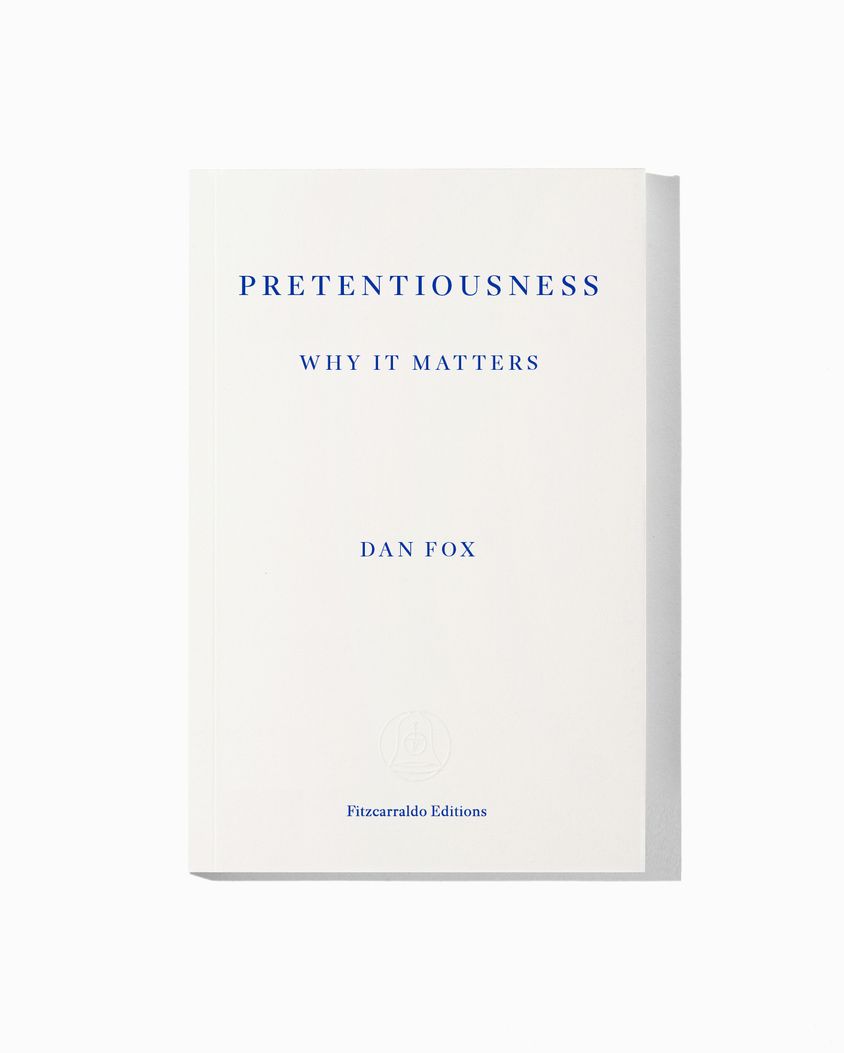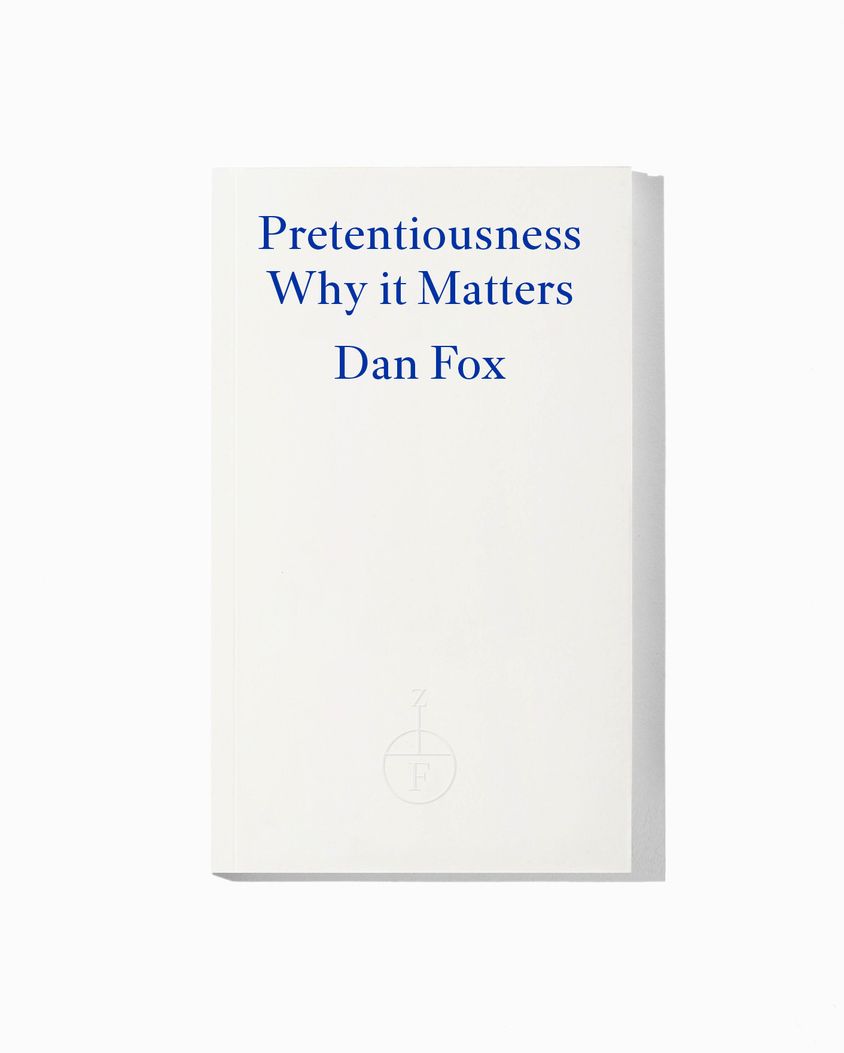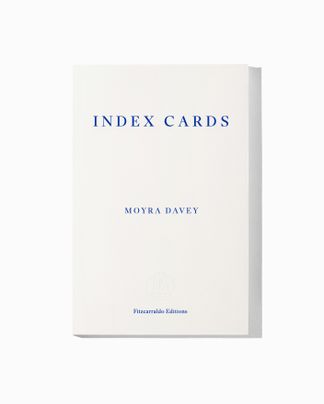What is pretentiousness? Why do we despise it? And more controversially: why is it vital to a thriving culture? In this brilliant, passionate essay, Dan Fox argues that it has always been an essential mechanism of the arts, from the most wildly successful pop music and fashion through to the most recondite avenues of literature and the visual arts. Pretentiousness: Why it Matters unpacks the uses and abuses of the term, tracing its connections to theatre, politics and class. From method acting to vogueing balls in Harlem, from Brian Eno to normcore, Fox draws on a wide range of references in advocating critical imagination and open-mindedness over knee-jerk accusations of elitism or simple fear of the new and the different. Drawing on his own experiences growing up and working at the more radical edges of the arts, this book is a timely defence of pretentiousness as a necessity for innovation and diversity in our culture.
‘Dan Fox makes a very good case for a re-evaluation of the word “pretentious”. The desire to be more than we are shouldn’t be belittled. Meticulously researched, persuasively argued – where would we be as a culture if no-one was prepared to risk coming across as pretentious? Absolument nowhere, darling – that’s where.’
— Jarvis Cocker
‘Pretentiousness: Why It Matters is more than a smartly counterintuitive encomium: it’s a lucid and impassioned defence of thinking, creating and, ultimately, living in a world increasingly dominated by the massed forces of social and intellectual conservatism. I totally loved the book.’
— Tom McCarthy, author of The Making of Incarnation
‘Dan Fox’s book celebrates the art in artifice, the let’s pretend in pretentiousness, arriving at an eloquent, important understanding of how culture has always provided an escape from the dreariness of routine work and productive life. Exhaustively researched and passionately written, recognizing those who audaciously “pretend” to beauty beyond their present means, Pretentiousness is a deeply optimistic and affirming book.’
— Chris Kraus, author of I Love Dick
‘In tackling so directly a term – “pretentiousness” – that has been thrown around too lightly for too long, Dan Fox has opened a fascinating, illuminating and barely glimpsed before perspective onto both culture and criticism. With clarity and persuasive argument he proves from an etymological basis that pretentiousness can be both good and bad – necessary even to cultural and artistic good health. This insightful book should be read like a contemporary reprise of an eighteenth-century essay on critical manners, for it shares with such texts the winning combination of wit, good sense and intellectual rigour.’
— Michael Bracewell, author of England is Mine
‘Epoch-making, epic, historic, unforgettable, triumphant, age-old, inevitable, inexorable, and veritable. Pretentiousness will never look the same.’
— Elif Batuman, author of Either/Or
‘It would be too much to say that Fox has ended the reckless use of “pretentious” as a bludgeon against the unfamiliar, but whoever reads Pretentiousness will come away with a greater appreciation for art, ambition, exploration, and failure.’
— Josh Cook, Los Angeles Review of Books
‘All art aspires to something it cannot achieve. All art is pretentious. And that is a good thing…. Fox’s brief and elegantly righteous essay on pretentiousness is definitely on the side of the angels.’
— Steven Poole, Guardian
‘When David Bowie dressed like an intergalactic peacock as Ziggy Stardust, many thought he was beyond pretentious. But it served a valuable purpose. He was doing what his sometime collaborator Brian Eno would describe as “the most important thing we do … it’s the way we make our thought experiments, find out what it would be like to be otherwise.” Knowing what it is like to be someone else is an essential part not just of cultural creation but of empathy itself. Not being ourselves is, as Fox shows, what it means to be human.’
— George Pendle, Intelligent Life
‘Fox makes a strong argument to say that we can judge a society by the way it treats pretentiousness…. In an age where collective action and trade unionism seem increasingly passé, pretention is a means of signalling one’s rejection of mass-production and perpetual consumerism, of aiming at something higher. Vive la prétention!’
— Workshy Fop
‘[I]n his very unpretentious prose, Fox makes a convincing case for there being value in this maligned behaviour.’
— Jonathan Beckman, Spectator
‘Fox is a nimble writer, and his brief book includes surprisingly rich detours through history, philosophy, criticism, literature.’
— Jennifer Szalai, New York Times
—
‘Why I’m pretentious — and proud of it’ by Dan Fox, Life & Arts, Financial Times
‘In defence of pretentiousness’ by Dan Fox, Guardian
Dan Fox discusses Pretentiousness on ‘Culture with Rob Bound’ on Monocle Radio






